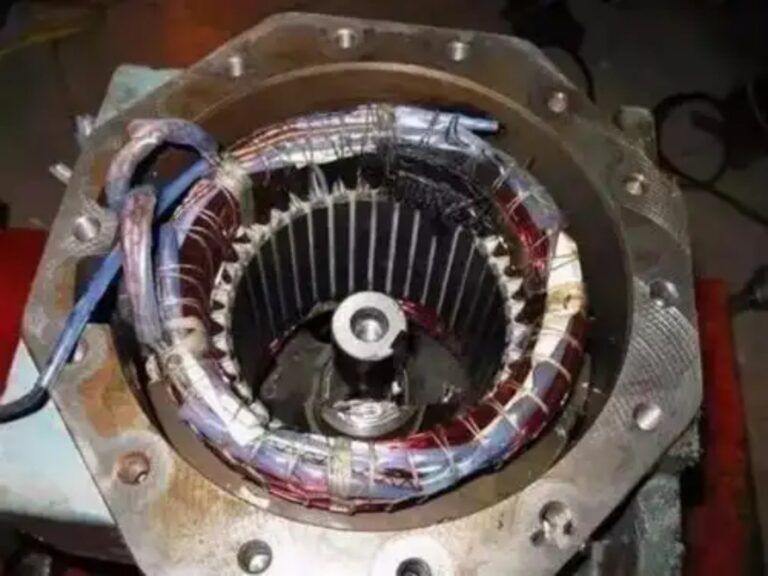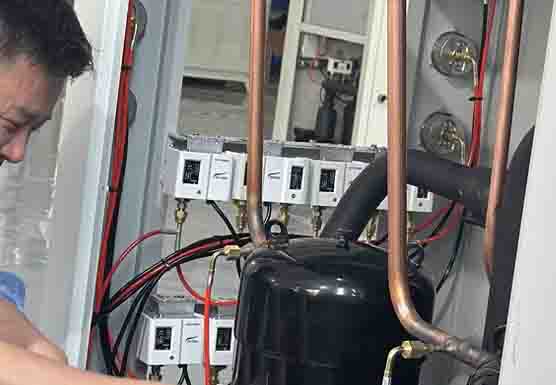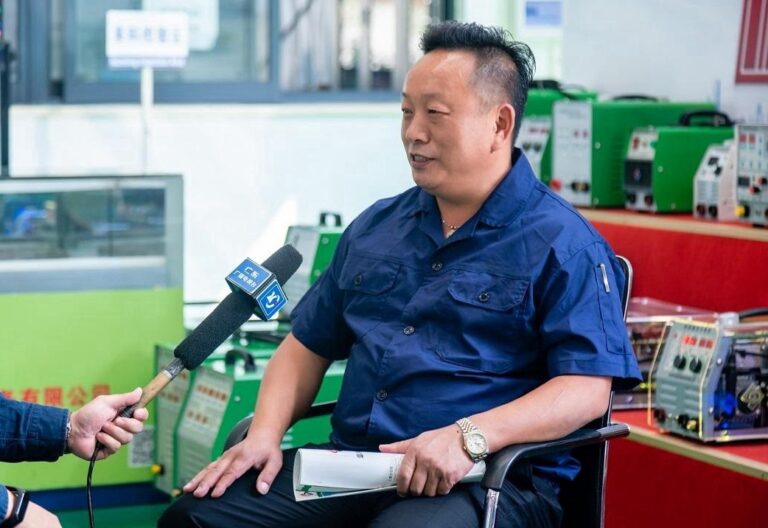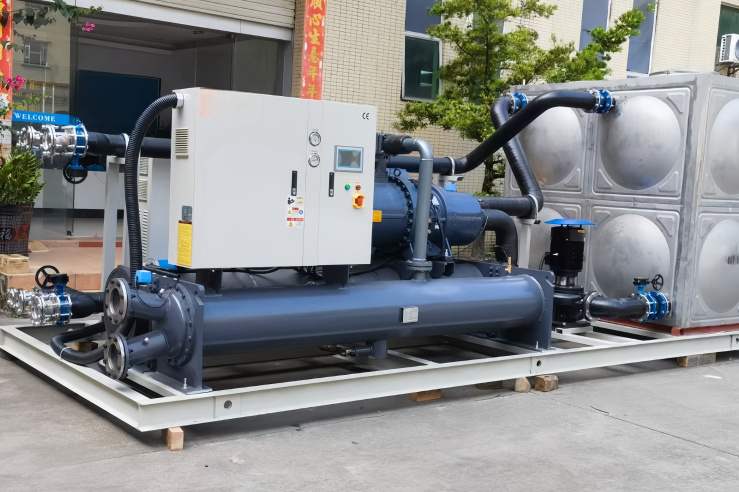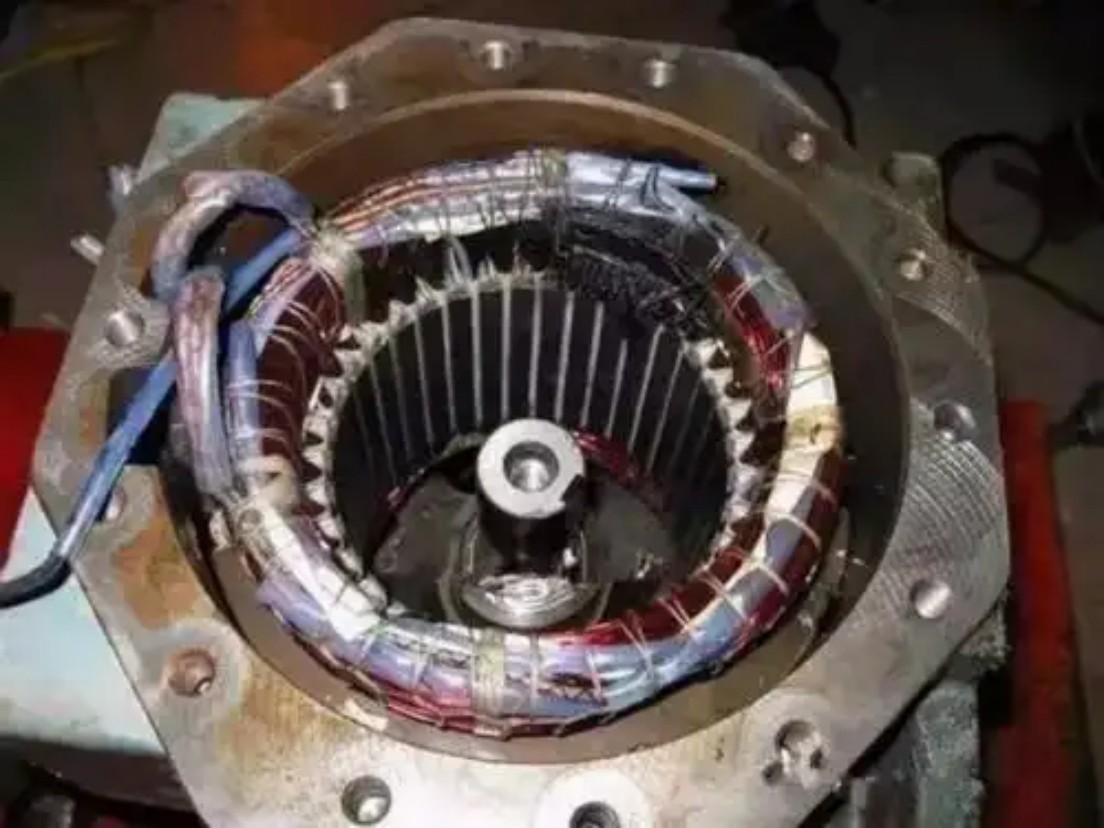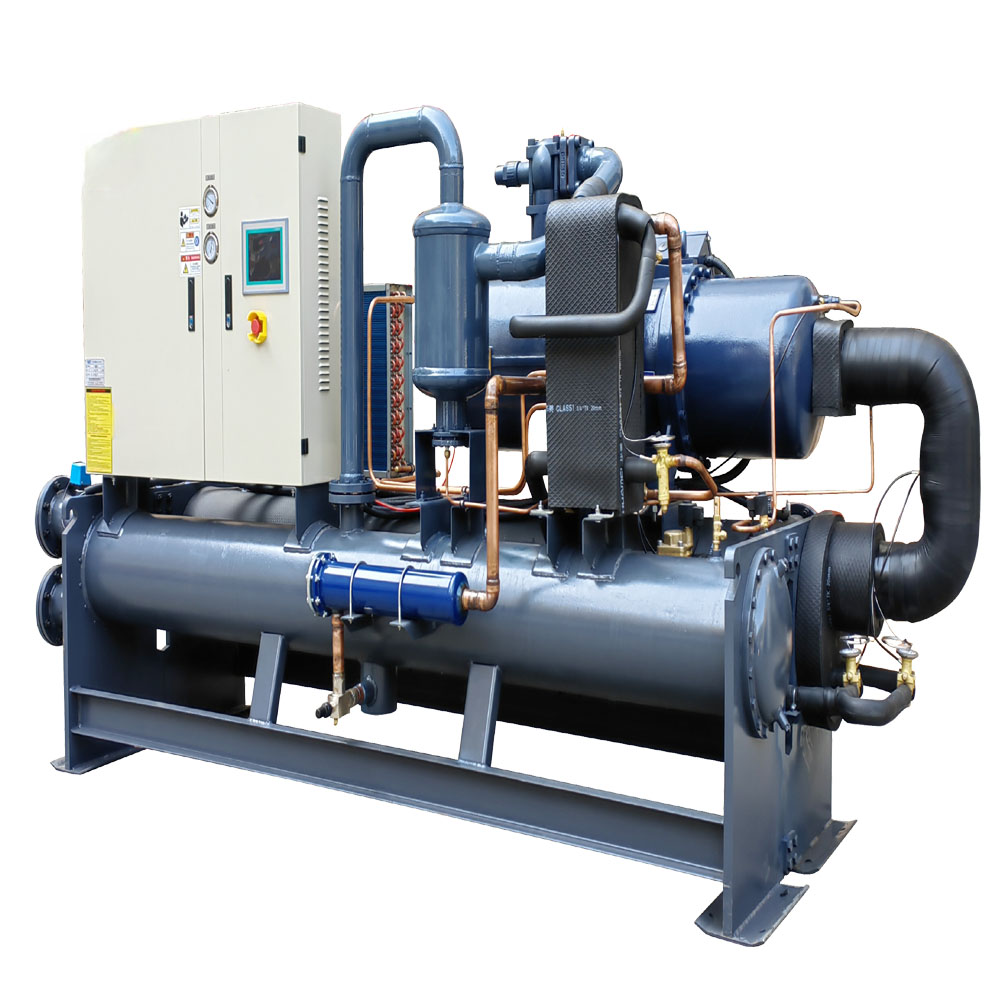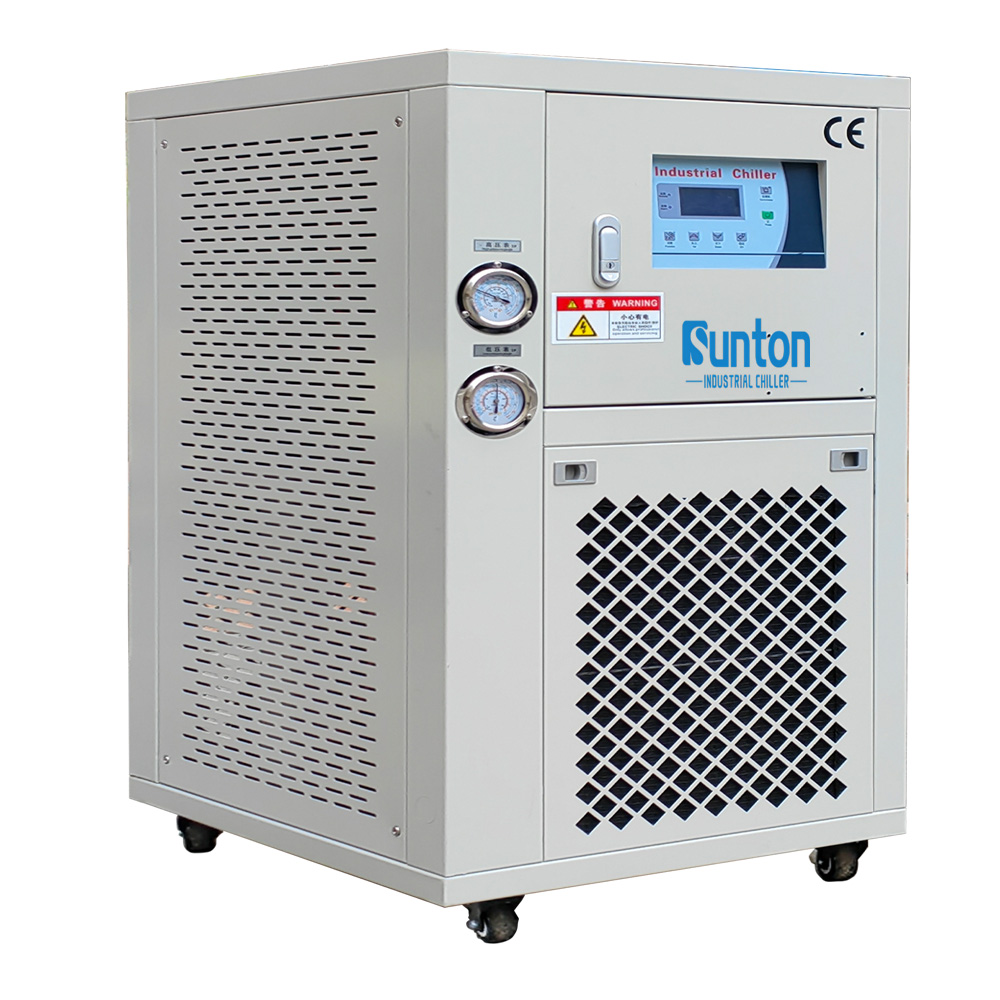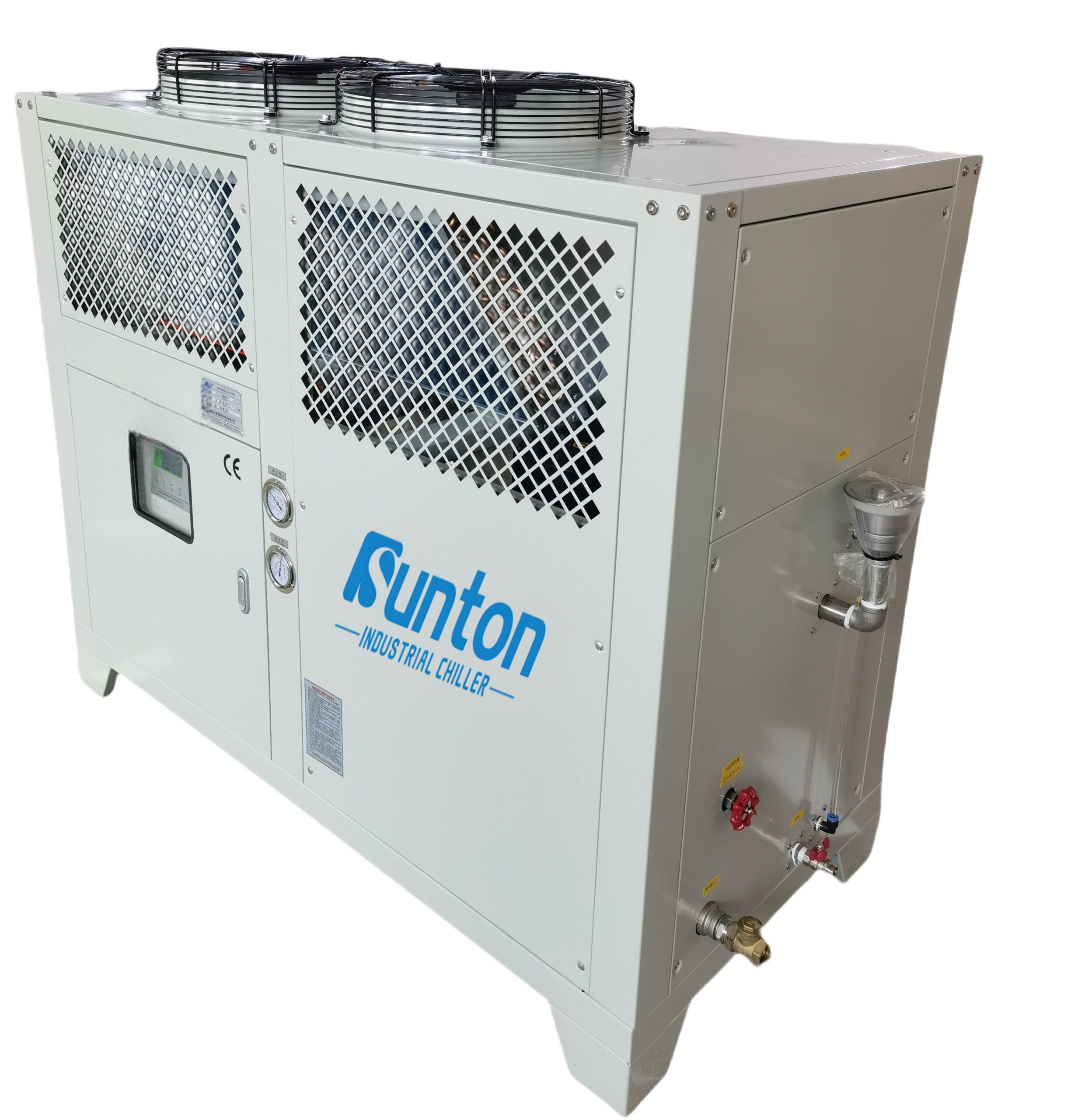-
Dalingshan Industrial Guangdong
Pendingin Air Hidroponik untuk Tanaman Anda
Pendingin Air Hidroponik: Peningkatan Daya yang Dibutuhkan Tanaman Anda
Apakah Anda ingin memaksimalkan hasil panen hidroponik Anda? Mempertahankan suhu air yang tepat sangat penting untuk pertumbuhan tanaman yang sehat, dan di situlah kualitas air yang dibutuhkan. pendingin air hidroponik masuk. Artikel ini akan menjelaskan mengapa pendingin air untuk hidroponik penting dan bagaimana hal itu dapat meningkatkan hasil Anda secara dramatis, membantu Anda memahami mengapa investasi ini bermanfaat.
Daftar Isi
- Mengapa sebuah pendingin air penting untuk hidroponik?
- Apa manfaat menggunakan pendingin air hidroponik?
- Bagaimana caranya pendingin air hidroponik bekerja?
- Apa saja perbedaannya? jenis pendingin air hidroponik tersedia?
- Bagaimana cara memilih air terbaik pendingin untuk anda sistem hidroponik?
- Adalah sebuah pemanas Pendingin menyediakan kontrol suhu yang juga diperlukan untuk pertumbuhan tanaman yang efektif. air hidroponik?
- Ukuran berapa pendingin air apakah aku butuh air untuk saya sistem hidroponik?
- Bagaimana caranya pendingin air hidroponik komersial menguntungkan operasi berskala besar?
- Apa peran dari suhu air bermain di hidroponik?
- Dimana saya dapat menemukan yang memiliki reputasi baik? pemasok dari pendingin air hidroponik?
Mengapa Pendingin Air Penting untuk Hidroponik?
Bagi mereka yang ingin menjelajah ke dunia hidroponik, memahami peran penting seorang pendingin air adalah yang terpenting. Tidak seperti berkebun tradisional berbasis tanah, hidroponik bergantung pada makanan yang kaya nutrisi berbasis air solusi untuk memberikan unsur-unsur yang diperlukan untuk pertumbuhan tanaman. suhu air berdampak langsung pada kesehatan dan produktivitas tanaman Anda. Tinggi suhu air dapat mengurangi jumlah oksigen terlarut di dalam larutan nutrisi, sehingga akar sulit menyerap unsur-unsur penting giziHal ini dapat menyebabkan pertumbuhan terhambat, peningkatan kerentanan terhadap hama dan penyakit, serta penurunan hasil panen. pendingin air sangat penting karena secara aktif bekerja untuk mendinginkan air, memastikan kondisi yang sempurna untuk pertumbuhan yang sehat. Kualitas pendingin air hidroponik adalah peralatan penting untuk setiap yang serius hidroponik penanam. Ini mencegah fluktuasi dan menjaga suhu dalam sistem hidroponik Anda stabil.
Tanpa yang dapat diandalkan sistem pendingin, yang suhu air dapat meningkat dengan cepat, terutama di Rumah kaca yang dilengkapi dengan sistem hidroponik dapat menghasilkan tanaman air tawar sepanjang tahun. atau lingkungan dalam ruangan dengan lampu tumbuh. Hangat air mendorong pertumbuhan patogen berbahaya, yang dapat menyebabkan busuk akar dan penyakit tanaman lainnya. Dengan menjaga kisaran suhu tanaman membutuhkan, pendingin air memastikan bahwa tanaman Anda dapat tumbuh subur dan berkembang secara maksimal. Ini bukan hanya tentang menjaga air keren; ini tentang menciptakan lingkungan yang stabil dan sehat yang meminimalkan risiko dan memaksimalkan pertumbuhan. Berinvestasi dalam pendingin air hidroponik adalah sebuah langkah menuju masa depan yang lebih sukses dan dapat diprediksi sistem hidroponik. Untuk hidroponik komersial operasi, hal ini menjadi lebih kritis.
Apa Manfaat Menggunakan Pendingin Air Hidroponik?
Manfaat Menggunakan pendingin air hidroponik jumlahnya banyak, dan jumlahnya tidak hanya terbatas pada menjaga air Keren. Pertama, kontrol suhu yang tepat memastikan optimal penyerapan nutrisi, yang merupakan kunci untuk menjadi kuat pertumbuhan tanamanTanaman menyerap gizipaling efektif dalam suatu hal tertentu kisaran suhuDengan mempertahankan kisaran suhu ideal dengan pendingin air, Anda memberi tanaman Anda peningkatan daya dan menciptakan landasan bagi perkembangan yang sehat dan peningkatan hasil panen. Pengendalian atas suhu air juga meningkat oksigen terlarut tingkat, yang penting untuk akar yang sehat. pendingin air hidroponik mengatasi masalah oksigen rendah dengan menjaga air dingin, memastikan bahwa tanaman mendapatkan oksigen yang mereka butuhkan.
Selain itu, sebuah pendingin air membantu mencegah pertumbuhan bakteri dan jamur yang berbahaya. Hangat air merupakan tempat berkembang biaknya patogen yang dapat menyebabkan penyakit akar yang mematikan. Dengan menjaga larutan nutrisi keren, itu pendingin air hidroponik mengurangi risiko masalah-masalah ini, sehingga berkontribusi pada kehidupan yang lebih stabil dan sehat. sistem hidroponikIni berarti lebih sedikit waktu yang dihabiskan untuk melawan penyakit dan lebih banyak waktu yang difokuskan pada budidaya tanaman yang tumbuh subur. penghobi dan hidroponik komersial penanam, A pendingin air menawarkan peningkatan hasil panen dan pengurangan kehilangan tanaman. Ini bukan hanya tentang bertahan hidup; ini tentang berkembang. Lebih jauh, menggunakan pendingin air menciptakan lingkungan pertumbuhan yang dapat diprediksi, menghasilkan hasil yang lebih konsisten dan output keseluruhan yang lebih baik.
Bagaimana Cara Kerja Pendingin Air Hidroponik?
A pendingin air hidroponik bekerja dengan prinsip yang sama seperti pada umumnya pendinginan unit. Itu menggunakan refrigeran untuk menyerap panas dari air di dalam kamu waduk, secara efektif DinginProsesnya dimulai dengan kompresor yang memberi tekanan pada refrigeran, yang kemudian bergerak melalui penguap kumparan. Sebagai air melewati dingin penguap kumparan, perpindahan panas dari air ke refrigeran, Dinginsedang melakukan air. Itu refrigeran, yang sekarang dipanaskan, bergerak ke kondensor tempat ia melepaskan panasnya. Siklus ini berulang, terus-menerus Dinginsedang mencarimu larutan nutrisi. Banyak pendingin air juga termasuk sistem kontrol, memungkinkan Anda untuk mengatur yang diinginkan kisaran suhu dan mempertahankannya dengan tepat.
The pompa air adalah kunci dalam proses ini. Ini mengedarkan larutan nutrisi melalui pendingin air dan kembali ke Anda sistem hidroponikSirkulasi konstan ini memastikan bahwa suhu air seragam di seluruh sistem Anda. Beberapa pendingin air hidroponik juga dilengkapi dengan built-in penyaringan sistem, membantu menjaga air bersih dan bebas dari kotoran. Efektivitas pendingin air dipengaruhi oleh lingkungan sekitar suhu, ukuran Anda waduk, dan keluaran panas dari peralatan lain, seperti lampu tumbuhOleh karena itu, memilih ukuran yang benar pendingin air untuk pengaturan Anda sangat penting untuk memastikan kinerja yang andal dan operasi yang efisien. Terawat dengan baik pendingin air sangat penting untuk keberhasilan hidroponik.
Apa Saja Jenis Pendingin Air Hidroponik yang Tersedia?
Pasar menawarkan berbagai macam jenis pendingin air hidroponik untuk memenuhi berbagai kebutuhan hidroponik penggemar. Salah satu jenis yang umum adalah sebaris pendingin air, yang dipasang di saluran pipa Anda sistem hidroponik. Itu larutan nutrisi dipompa melalui pendingin air, di mana ia didinginkan dan kemudian dikembalikan ke wadukTipe ini sangat bagus karena efisiensinya dan kemampuannya untuk menangani volume yang lebih besar airPilihan populer lainnya adalah dapat tenggelam pendingin air, yang sesuai dengan namanya, ditempatkan langsung ke dalam waduk. Pendingin submersible seringkali lebih terjangkau dan cocok untuk skala kecil sistem hidroponikS.
ada juga pendingin air aktif unit-unit yang terkenal karena keunggulannya kontrol suhu yang tepat dan hemat energi desain. Unit-unit ini sering kali menyertakan fitur-fitur canggih seperti layar lcd dan pengontrol pengaturan yang memungkinkan Anda untuk menyempurnakan suhu airSelain itu, Anda mungkin mengalami pendingin akuarium, yang lebih kecil pendingin air sering digunakan oleh penghobi, tapi mungkin kurang kuat dibandingkan dengan yang lebih besar pendingin airPilihan antara ini pilihan yang tersedia sering tergantung pada anggaran Anda, ukuran sistem hidroponik, dan kebutuhan pendinginan spesifik Anda. Setiap jenis pendingin air memiliki serangkaian kelebihan dan kekurangannya sendiri, sehingga penting untuk meneliti dan memilih salah satu yang paling sesuai dengan kebutuhan Anda. hidroponik pengaturan.
Bagaimana Memilih Pendingin Air Terbaik untuk Sistem Hidroponik Anda?
Memilih air terbaik pendingin untuk anda sistem hidroponik melibatkan pertimbangan cermat berbagai faktor. Pertama, tentukan ukuran waduk. Itu pendingin air perlu berukuran tepat untuk menangani volume air dan efektif Dingin itu. Itu daya kuda pemeringkatan pendingin air harus sesuai dengan kapasitas Anda sistem hidroponikMemilih pendingin air yang terlalu kecil mungkin tidak memadai mendinginkan air, sedangkan yang terlalu besar akan menghabiskan energi yang tidak perlu. Sangat penting untuk memeriksa spesifikasi pendingin air Anda mungkin mempertimbangkan. Kedua, pertimbangkan lingkungan sekitar suhu lingkungan pertumbuhan Anda. Jika Anda berada di daerah dengan iklim panas, Anda akan membutuhkan yang lebih kuat pendingin airPanas yang dihasilkan oleh lampu tumbuh juga dapat meningkatkan secara signifikan suhu dalam sistem hidroponik Anda, jadi pertimbangkan hal ini saat memilih ukuran yang benar pendingin air.
Selain itu, nilai fitur kontrolnya. pendingin air dengan tepat kontrol suhu sistem dan sebuah layar lcd memungkinkan penyesuaian yang lebih mudah. Kemudahan pengaturan dan pemeliharaan itu penting, jadi carilah pendingin air yang mudah digunakan dan memiliki proses instalasi yang sederhana. Pertimbangkan juga bahan-bahannya pendingin air, mereka yang memiliki panas titanium Penukar panas dikenal karena daya tahannya dan kurang rentan terhadap korosiPeriksa apakah pendingin air adalah hemat energi untuk meminimalkan biaya operasional Anda. Ada baiknya juga membaca ulasan dan mendapatkan rekomendasi dari sesama penanamyang memiliki pengalaman dengan model yang berbeda. Anda pemasok juga akan menawarkan wawasan dan rekomendasi yang berharga.
Apakah Pemanas Juga Dibutuhkan untuk Air Hidroponik?
Sementara sebuah pendingin air sangat penting untuk menjaga air suhu turun, terutama di iklim yang lebih hangat atau di bawah panasnya lampu tumbuh, terkadang pemanas mungkin juga diperlukan untuk air hidroponikHal ini terutama berlaku di daerah beriklim dingin atau selama bulan-bulan musim dingin ketika suhu sekitar suhu mungkin akan turun secara signifikan. kisaran suhu ideal untuk sebagian besar hidroponik tanaman berada pada suhu 65 sampai 80 derajat Fahrenheit. A pendingin air dirancang untuk menurunkan suhu air , tetapi di lingkungan yang lebih dingin, pemanas dapat membantu membawa suhu kembali ke kisaran suhu ideal.
Menggunakan pemanas dalam kombinasi dengan pendingin air menciptakan lebih stabil kontrol suhu sistem. Ini akan memungkinkan Anda untuk mempertahankan suhu air terlepas dari kondisi eksternal. pemanas dapat memastikan bahwa tanaman Anda tidak mengalami stres akibat penurunan suhu yang tiba-tiba suhu dalam sistem hidroponik Anda. Banyak hidroponik petani menggunakan pengontrol yang dapat mengelola keduanya pendingin air dan pemanasSistem ini memudahkan perawatan suhu yang diinginkan dan memastikan kondisi pertumbuhan yang konsisten. Di daerah dengan fluktuasi yang signifikan suhu, keduanya pendingin air dan sebuah pemanas sangat penting. Hal ini memungkinkan Anda untuk menyediakan tanaman Anda dengan lingkungan yang stabil yang mereka butuhkan untuk tumbuh subur, mencegah sistem hidroponik dari mengalami kejutan suhu.
Pendingin Air Berukuran Apa yang Saya Butuhkan untuk Sistem Hidroponik Saya?
Menentukan ukuran yang benar pendingin air Untukmu sistem hidroponik sangat penting untuk kinerja yang optimal. Ukuran pendingin air biasanya ditentukan berdasarkan ukuran dari Anda waduk. A pendingin air yang terlalu kecil akan kesulitan untuk mendinginkan secara efektif itu air, sedangkan unit yang terlalu besar dapat menjadi pemborosan dalam hal konsumsi energi. Saat memilih ukuran yang tepat pendingin air penting untuk mempertimbangkan lingkungan sekitar suhu di ruang tumbuh Anda dan keluaran panas Anda lampu tumbuh dan peralatan lainnya. Pedoman dasar adalah memilih pendingin air yang dapat menangani setidaknya 20-30% lebih banyak dari Anda waduk kapasitas, terutama jika Anda memiliki ambient yang tinggi suhu atau sumber panas yang signifikan.
Untuk mendapatkan perkiraan yang lebih akurat, hitung volume Anda waduk dalam galon, dan konsultasikan spesifikasi pabrik pembuatnya pendingin air. Paling pemasoks akan memberikan panduan tentang rekomendasi pendingin air ukuran berdasarkan ukuran dari Anda waduk. Beberapa pendingin air akan menyatakan kapasitas pendinginannya, dan ini harus disesuaikan dengan Anda waduk ukuran dan iklim di sekitarnya. Ingatlah bahwa jika Anda lampu tumbuh menghasilkan sejumlah besar panas, Anda mungkin perlu meningkatkan kapasitas Anda pendingin airSelalu disarankan untuk memilih ukuran yang sedikit lebih besar pendingin air daripada yang hampir tidak memenuhi kebutuhan Anda. Ini akan memastikan bahwa Anda sistem hidroponik memiliki kapasitas untuk tetap bertahan Dingin bahkan selama periode hangat dan memberikan hasil yang lebih konsisten, terutama jika Anda berlari hidroponik komersial sistem.
Bagaimana Pendingin Air Hidroponik Komersial Dapat Menguntungkan Operasi Skala Besar?
Untuk skala besar hidroponik komersial operasi, kualitas tinggi pendingin air hidroponik komersial bukan hanya sebuah kemewahan—ini adalah sebuah kebutuhan. Sistem ini sering kali melibatkan hal-hal yang jauh lebih besar waduk, luas sistem irigasi, dan kepadatan tanaman yang lebih tinggi. kelas komersial pendingin air dirancang untuk menangani tuntutan ini dan memastikan pendinginan yang konsisten dan andal. Pendingin air datang dengan kuat kompresors, besar penguap kumparan, dan lanjutan sistem kontrolmampu mengelola volume yang signifikan airHal ini penting untuk menjaga kontrol suhu dalam lebih besar rumah kaca lingkungan. Mereka sering menampilkan panas titanium penukar untuk mencegah korosi, lebih banyak hemat energi dan dirancang untuk operasi berkelanjutan.
Hidroponik komersial penanammanfaat dari keandalan dan umur panjang unit ini. Keandalan ini mengurangi waktu henti dan memastikan bahwa sistem hidroponik beroperasi pada efisiensi puncak. pendingin air hidroponik komersial membantu menjaga lingkungan yang konsisten dan stabil, menghasilkan hasil panen yang lebih konsisten dan tanaman dengan kualitas yang lebih tinggi. Kemampuan untuk mengelola suhu air tepatnya memungkinkan hidroponik komersial pertanian untuk menghasilkan tanaman dalam skala yang jauh lebih besar. Selain itu, pendingin air hidroponik komersial memastikan bahwa larutan nutrisi tetap pada kondisi optimal suhu untuk maksimal penyerapan nutrisi, yang menghasilkan tanaman yang lebih sehat dan hasil yang lebih baik. Untuk operasi yang lebih besar ini, investasi dalam sistem yang bermutu diperlukan untuk mempertahankan keunggulan kompetitif.
Apa Peran Suhu Air dalam Hidroponik?
The suhu air memainkan peran penting dalam kesehatan dan keberhasilan Anda secara keseluruhan sistem hidroponikSecara khusus, hal ini mempengaruhi jumlah oksigen terlarut di dalam larutan nutrisi. Air yang lebih dingin menampung lebih banyak oksigen terlarut dari lebih hangat airTanaman membutuhkan oksigen dalam zona akar untuk memperlancar pernapasan, dan ketika kadar oksigen rendah, hal ini menyebabkan stres, pertumbuhan lambat, dan peningkatan kerentanan terhadap penyakit. Oleh karena itu, menjaga suhu ideal menggunakan pendingin air membantu memastikan akar menerima oksigen yang dibutuhkan. suhu air juga berdampak pada tingkat penyerapan nutrisiTanaman menyerap gizipaling efektif dalam suatu hal tertentu kisaran suhuKetika suhu berada di luar kisaran ini, bahkan jika benar giziJika ada, mereka tidak akan diserap secara efisien.
Selain itu, hangat air mendorong pertumbuhan patogen berbahaya, yang dapat merusak akar, menyebarkan penyakit dan menimbulkan penyakit. hama infestasi. Sebuah pendingin air membantu mencegah pertumbuhan patogen ini dengan menjaga konsistensi, Dingin lingkungan. Hal ini menghasilkan tanaman yang lebih sehat dan lebih kuat. Dengan mengelola secara aktif suhu air, hidroponik Petani dapat mencapai pola pertumbuhan yang lebih baik dan lebih dapat diprediksi, meminimalkan risiko penyakit, dan memaksimalkan hasil panen mereka. Singkatnya, suhu air di hidroponik anda secara langsung mempengaruhi kesehatan, pertumbuhan, dan produktivitas Anda sistem hidroponik, membuat pendingin air sebuah peralatan yang penting.
Di Mana Saya Dapat Menemukan Pemasok Pendingin Air Hidroponik yang Bereputasi Baik?
Menemukan yang memiliki reputasi baik pemasok Untukmu pendingin air hidroponik Produk berkualitas dan dukungan yang andal sangat penting untuk memastikan Anda mendapatkan air bersih untuk sistem hidroponik Anda. pemasok harus menawarkan berbagai macam pilihan yang tersedia, melayani berbagai macam sistem hidroponik ukuran dan kebutuhan. Mereka juga harus memberikan spesifikasi terperinci untuk setiap pendingin air, beserta saran dan rekomendasi ahli untuk membantu Anda memilih ukuran yang benar Untukmu sistem hidroponik. Dapat diandalkan pemasok akan memiliki pengetahuan tentang berbagai hal jenis pendingin air hidroponik dan dapat menjawab pertanyaan apa pun yang mungkin Anda miliki tentang mereka pengaturan, pemeliharaan, dan pengoperasian.
Carilah sebuah pemasok yang menawarkan garansi atas produk mereka. Ini merupakan indikator kualitas produk yang baik dan memastikan Anda akan terlindungi jika terjadi masalah. Baca ulasan dari pelanggan lain, dan tanyakan tentang layanan pelanggan mereka. pemasok dengan layanan pelanggan yang sangat baik harus cepat, ramah, dan membantu. Selain itu, periksa apakah pemasok menawarkan opsi penyesuaian apa pun. Bagus pemasok akan dapat menyesuaikan pendingin air untuk memenuhi kebutuhan spesifik Anda sistem hidroponikSaat meneliti sebuah pemasok, pertimbangkan lokasi dan kebijakan pengiriman. Lokal pemasok mungkin dapat menawarkan pengiriman yang lebih cepat dan dukungan langsung. Ketika menyangkut sesuatu yang sepenting pendingin air hidroponik, sangatlah penting untuk bermitra dengan pemasok yang dapat Anda percaya.
Pertanyaan Umum
Apa yang ideal? kisaran suhu untuk hidroponik larutan nutrisi?
The kisaran suhu ideal untuk sebagian besar hidroponik tanaman berada pada suhu 65 sampai 80 derajat Fahrenheit.
Bisakah saya menggunakan yang biasa? pendingin akuarium untuk saya hidroponik pengaturan?
Sementara sebuah pendingin akuarium mungkin bekerja untuk pengaturan yang sangat kecil, mereka tidak sekuat atau seefisien pendingin air hidroponik dirancang untuk hidroponik sistem.
Seberapa sering pendingin air butuh perawatan?
Pembersihan dan perawatan rutin sangat penting untuk kinerja yang optimal. Periksa dan bersihkan filter secara berkala, dan baca petunjuk produsen untuk persyaratan perawatan khusus.
Bisakah sebuah pendingin air membantu mencegah pembusukan akar?
Ya, dengan menjaga suhu air dalam kisaran optimal, a pendingin air dapat membantu mencegah pertumbuhan patogen penyebab busuk akar.
Berapa lama umur suatu produk berkualitas? pendingin air hidroponik?
Dengan perawatan rutin dan penggunaan yang tepat, akan menghasilkan produk yang berkualitas pendingin air hidroponik harus bertahan selama bertahun-tahun. Selalu periksa spesifikasi pabrik untuk mengetahui masa pakai dan panduan perawatan.
Apakah saya memerlukan yang terpisah? pompa air untuk sebuah pendingin air?
Paling pendingin air membutuhkan pompa air untuk mengedarkan larutan nutrisi melalui sistem. Beberapa model dilengkapi dengan pompa air.
Ringkasan
- A pendingin air hidroponik sangat penting untuk menjaga kondisi optimal suhu air di dalam kamu sistem hidroponik.
- Konsisten kontrol suhu mempromosikan penyerapan nutrisi, meningkat oksigen terlarut, dan mencegah pertumbuhan patogen berbahaya.
- The jenis pendingin air hidroponik termasuk unit inline dan submersible, dengan berbagai pilihan untuk memenuhi kebutuhan Anda.
- Memilih air terbaik chiller melibatkan pertimbangan ukuran Anda waduk, lingkungan sekitar suhu, dan kapasitas pendinginan pendingin air.
- Keduanya pendingin air dan sebuah pemanas mungkin diperlukan untuk mempertahankan kisaran suhu ideal berdasarkan kondisi lingkungan.
- Sebuah reputasi pemasok menawarkan berbagai produk berkualitas tinggi, garansi, dan dukungan untuk Anda sistem hidroponik.
Dengan memahami peran penting sebuah pendingin air hidroponik bermain, dan dengan perencanaan dan pemilihan yang tepat, Anda akan meningkatkan hasil dan keberhasilan keseluruhan Anda hidroponik taman. Pertimbangkan untuk menjelajahi pilihan kami Pendingin Sentral Sekrup Berpendingin Air untuk solusi yang kuat. Jika Anda berada di daerah beriklim dingin, dan memiliki ruang yang lebih kecil hidroponik pengaturan, pertimbangkan kami Pendingin Sekrup Berpendingin Udara untuk menyediakan pendinginan yang andal. Jika Anda memerlukan sistem sederhana untuk ruangan yang lebih kecil taman dalam ruangan lihat kami Pendingin Air Gulir Berpendingin UdaraUntuk teknologi pendinginan tingkat lanjut, pertimbangkan Solusi Pendinginan Chiller Suhu RendahUntuk berbagai pilihan, jelajahi pilihan lengkap kami Menara Pendingin dan temukan yang sempurna pendingin air sesuai dengan kebutuhan Anda. Ingatlah untuk memilih ukuran yang benar dan selalu mengutamakan kinerja yang andal untuk hasil yang tahan lama, dan pertimbangkan untuk menghubungi kami, mitra terpercaya Anda pemasok, Hari ini!

